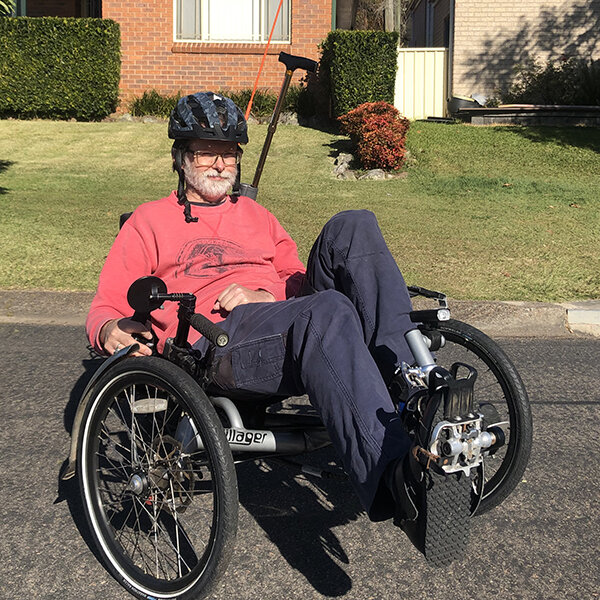Stories & Achievements: Ray’s Story
Ray’s story: a ray of hope
“I moved to Australia in 2006 with his wife and 4 year old son. Three months later he had a massive stroke.”
I used to be a very active person both physically and mentally. Being Canadian, yes, I even played ice hockey. But my stoke affected everything. I used to have a very high level engineering job, but I couldn’t work anymore. At first I couldn’t walk, talk or even swallow. I had to have a tracheotomy and be fed through my belly. But slowly things came back. Not everything but more than not.
My stroke was a hereditary thing, actually, it was a split in my carotid artery. My paternal grandmother, and other relatives suffered strokes in the past. I was in bed and hit the side table on the way to the floor, and my wife found me there.
“I lost around two thirds of the right side so I’m very lucky to be here.”
Not only did if affect me, but my wife and my son. My four year old basically lost most of what kids expect to be able to do with their dads. And my wife and I had these grand visions for life together, and raising our son. But I’m very happy with how he did turn out and I’m proud of the young man he is today at 19 years old.
There’s also the social side of things that stroke affected. I’d not been in Australia long and so didn’t have many friends here yet. As one does when they move to the other side of the world, I still spoke to people back in Canada a couple times a week. You try and stay in contact. But some friends don’t know how to deal with somebody who has a brain injury. I’ve seen it with other people with brain injury as well, people just don’t know how to respond so it goes in the ‘too hard basket’ and they lose touch and unfortunately you get that kind of thing.
Recovery, as with many things, went in stages. Like when I first started getting physio at Rankin Park, some people you just click with and they’ll help you get that next level pretty well.
I’ve had a few great physio’s and OT’s and also speech pathologists. The physio that I have now is probably the best I’ve ever had. He’s got me from being able to do regular walking to now we’re working towards running a 5k. Right now I’m at just under two hours to be able to walk a 5k, and I want to do it within an hour. He’s going to help me with that and then we’ll look at the 10ks as well.
I used to actually race a 10k in under 25 minutes before my stroke. And fourteen years later (about a year ago) I got to the point where I could walk 5ks non stop. Going from a stroke to doing it in 2 hours is a good thing!
It’s taken a lot of work, and it’s the ‘use it or lose it’ thing, so I try to increase everything I’m doing. I keep at it.
Originally it was a social worker at Rankin Park that introduced me to Headstart over ten years ago now. Will was originally my support worker and then he became a co-worker.
I was a competitive 10k runner but couldn’t do that or ride my bike anymore. I can only use the recumbent one that I have now.
I like to keep active and work on my fitness capacity during my community shifts, including a lot of walking and the occasional ride on my custom, reclining and one-handed control, tricycle. Because of my balance problem I can’t ride a regular bike anymore.
“A recumbent tricycle is like a lounge chair that you just lie back on and the support worker will go with me and help keep me safe from obstacles and cars. ”
I only have half my sight too, so I can’t see on the left side. I have to move my head. I did most of my cycling over several years, when I lived in Medowie, with Denielle and other CSW’s. I have just started doing it in Newcastle about a month ago with Daniel.
While the companionship is great, the support workers are also there in case something should happen to me, and allows my wife to continue to work part time and also study part time. We can’t live off Centrelink on it’s own, so it’s good to have Headstart to make sure that I stay safe and don’t fall.
One morning a week Daniel (prior it was Craig) takes me to the Raymond Terrace Men’s Shed in case I need help when I am there doing woodwork like making toys and furniture. They also help me do errands and exercise like walking and cycling on those mornings. Leading up to Christmas last year Headstart helped me man the shed’s pop-up non-profit shop selling some of the stuff we make as well as taking custom orders.
On another morning Zeb (sometimes others) takes me to Rutherford for an Aphasia support group and group communication therapy with a speech pathologist. He also takes me for walks and doing errands that morning when needed.
I’ve had different workers over time and they’ve all been good. It’s a case of different workers for different days and for different activities. Which is also good for the social aspect of it too. You’re not hearing the same story over and over!
I go out for a day a week with Denielle, my longest serving worker. She currently takes me to my regular Physio appointment, for walks as well as to HMRI (Hunter Medical Research Institute) in Newcastle where I help University of Newcastle research scientists in the Priority Research Centre (PRC) for Stroke and Brain Injury. I’m volunteering and work with the researchers there to help them find people who might be interested in helping with research.
I work helping them design research projects, for instance a diet study that supports people to eat well for better health after stroke and for stroke prevention. I’ve been doing some talks for them too, providing information to the public and helping them make some videos and social media. There’s a lot I can’t do after my stroke, but this is one of the things I can do and it’s also giving back.
Physically, my main goal is that I want to be able to formerly finish a 10k running race. It’s important to me that I do it when the race is actually still on. Sure I could probably start right now and finish sometime next week, but I want to be able to finish it when the race hasn’t yet closed. I have 13 marathons under my belt from before my stroke, but I suspect that would require more time than the race is actually open!
Psychologically, that big goal is to be on the team of researchers that makes a discovery that goes nationally.
Otherwise it would be nice to travel again. I know that none of us can really do that now, but one day getting back to Canada again would be good. Seeing more of our country here would be nice too.”
Read more about Ray’s work with HMRI, including volunteering opportunities.
Ray shares a few of the ways that Headstart have helped him over the past ten years.
Ray explains a little about how people respond to his injury and what having aphasia is like.




